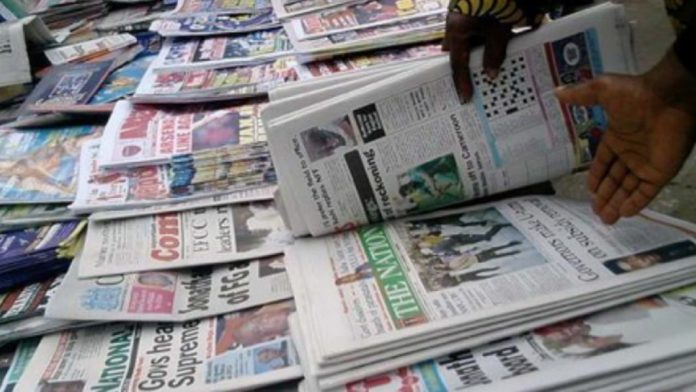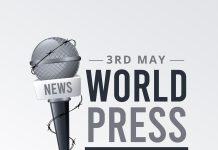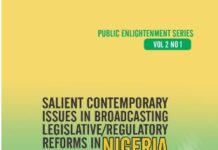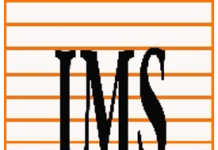Lekan sote
The mass media are indispensable in modern democracies, like Nigeria, where there is a need to link a citizenry of more than 190 million scattered over a landmass of 924 square kilometres.
A lot is happening in government, businesses, and among the citizens at rapid fire speeds, and the information about all these must be disseminated by means swifter than the Pony Express used in America before the days of the mass media.
Information about new laws, ordinances, government policies, business products and services, and the opinions and concerns of citizens, must be conveyed throughout the communication spectrum.
If you go by the Agenda Setting Theory derived by communication scholars, you might say that the mass media determine what their audience would talk about, even if they cannot dictate the opinion that their audience would hold.
But that position neglects the new thinking among communication scholars that maybe hitherto discarded Hypodermic Needle Theory, which suggests that the audience is indeed influenced by content from the media, is valid after all.
The mass media’s advocacy on behalf of citizens started from the 18th Century when the British House of Commons seemed to have abdicated its constitutional responsibilities as the voice of the Commons.
Communications scholar, Tom Burns, recalls a suggestion that “the press alone rivalled the House of Commons, in that it was the only organ of public opinion capable of dictating to the Government, since nothing else could speak the sense of the people.”
The influence of the mass media, and the role they have assumed in modern democracies, compel interrogation in this season of electioneering towards Nigeria’s general elections that will commence on February 16, 2019, just “a few metres away,” if you choose to visualise time in terms of distance.
The voting public must be adequately informed about the plans and activities of the Independent National Electoral Commission, the politicians, and the political parties that are seeking elective offices. Citizens also need to know what is expected of them.
So the agenda of the mass media is set: Namely, to provide insights and interpretations of INEC policies, and the programmes of politicians and their political parties, so that the voting public can make informed judgments and decisions.
There must be good reasons for the Nigerian Constitution to have included Section 22, which provides that “The press (meaning the print media), radio and television, and other agencies of mass media shall at all times be free to uphold… the responsibility of the Government to the people.”
American President and statesman, Thomas Jefferson, once said: “Were it left to me to decide whether we should have a government without newspapers, or newspapers without government, I should not hesitate to prefer the latter.”
By the way, the mass media can achieve the job assigned to them in the constitution by taking advantage of both investigative reporting and access journalism, enabled by direct access (what else?) to news sources.
While investigative reporting helped the American mass media to obtain scoops on the Watergate burglaries from “Deep Throat” of the Federal Bureau of Investigation, access journalism got backgrounding info from Henry Kissinger’s State Department.
Both approaches provided valuable information on behalf of America’s democracy in the turbulent President Richard Nixon years: While the former provided exposes, the latter, valuable information for America’s top newspaper columnists.
In case anyone doubts the intention of the constitution to use the mass media for the realisation of the values of democracy, the writers made ample provision in its Section 39(1,2).
It says therein: “Every citizen shall be entitled to freedom to hold opinions, and to receive and impart ideas and information without interference; (and)… shall be entitled to own, establish, and operate any medium for the dissemination of information, ideas, and opinions.”
Of course, the rights of a citizen to these can only be limited by Section 45(1) of the Constitution “in the interest of defences, public safety, public order, public morality, or public health; or for the purpose of protecting the rights and freedoms of other persons.”
The mass media must be involved in publicising the dates and venues of elections, the way the elections would be conducted, notifying INEC, security agencies, government, and the public, of any shortcomings, and announcing the results as released by INEC.
The mass media should interrogate the extent to which political parties and their candidates comply with the rules of the game, as enunciated by both the constitution and the Electoral Act as amended.
And no matter the pecuniary inducement to do otherwise, the mass media should comply with the statutory requirement that electioneering must only hold for 90 days, and terminate 24 hours, before the election is held. Section 99 of the Electoral Act 2014 prescribes that a violation of this Act is “an offence, and upon conviction, (the offender) is liable to a maximum fine of N500,000.”
It is good for journalists to know that Section 100(6) of the Electoral Act 2014 prescribes that “a public media that contravenes subsections (3) and (4) of… Section (100) commits an offence, and is liable on conviction to a maximum fine of N500,000 in the first instance, and to a maximum of N1,000,000 for subsequent convictions.”
Sub-section 100(3,4) of the Electoral Act states as follows: “Media time shall be allocated equally among the political parties or candidates at similar hours of the day; (and) at any public electronic media, equal airtime shall be allocated to all political parties or candidates during prime time at similar hours each day, subject to the payment of appropriate fees.”
Maybe, each media house should be checking how much space or time it has so far allocated to the smaller political parties, and the lesser known candidates, when compared to the so-called bigger political parties, with their elaborate spread, as well as their political heavyweights.
Of course, this is a tough call when you consider the logistics of accommodating all the 91 political parties and their motley crowd of probably 73 presidential candidates, even though some of them are making it easy by collapsing their ambitions to support other presidential candidates.
Though Section 102 of the Electoral Act, which says, “A candidate, person, or association who engages in campaigning or broadcasting, based on religious, tribal, or sectional reason… commits an offence… and is liable on conviction to a maximum of N1,000,000 or imprisonment for a term of 12 months, or both,” is directed at politicians, journalists must also mind its Riot Act.
The mass media must assist INEC to fulfil Section 154 of the Electoral Act 2014 which provides that “(INEC) shall have power to conduct civic education, and enlightenment in the print and electronic media.” Public enlightenment, the forte of the mass media, is key to successful polls.
And, if there are disputations before, during and after the elections, as it would likely be, the mass media must bring all to the notice of the public. And if any of the electoral petitions tribunals has causes to hear any petition, the media must inform the public the details of the proceedings, findings, conclusions, and judgments.
By so doing, the mass media would have fulfilled their constitutional and professional obligations, and contributed to achieving perhaps the most crucial aspect of democratic rituals.
















